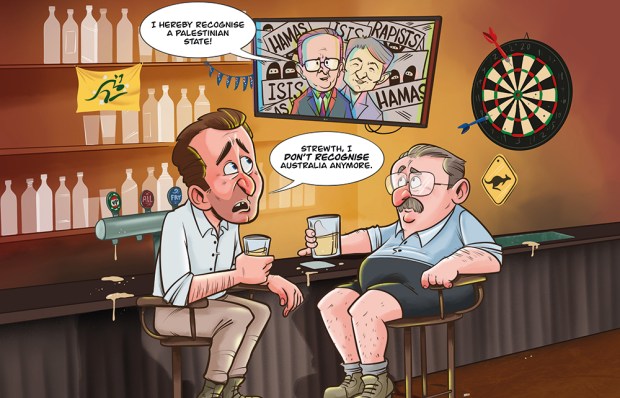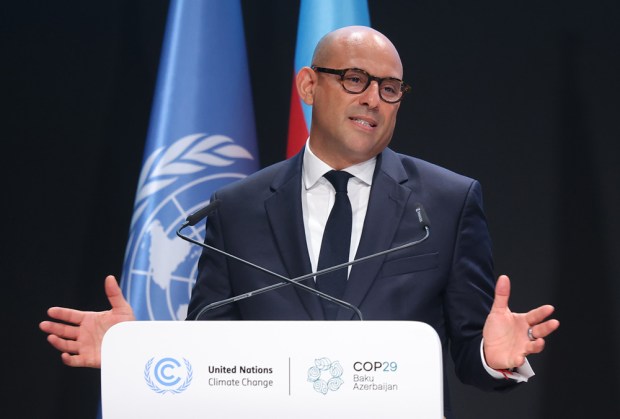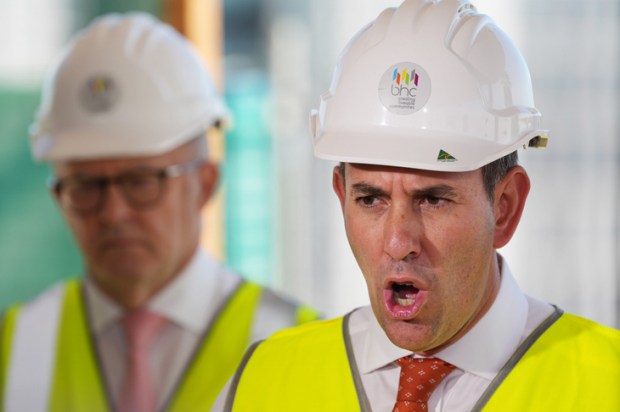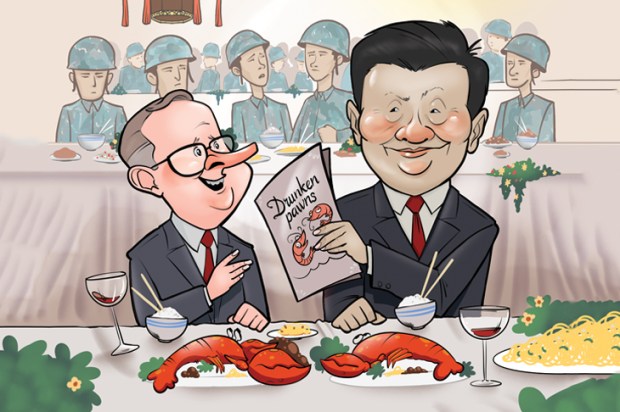Nothing better symbolises the dismal future that Labor and the Greens are preparing for Australia than the warning in a report this week that the Victorian government’s ‘aggressive electrification’ plans to bring online more renewables will result in the twin ills of skyrocketing electricity prices and mass blackouts.
Nobody should be surprised. Demand in Victoria is already forecast to outstrip the supply of renewable energy by more than 30 per cent in some months. If the activists have their way, the demand for electricity is set to increase even more because we will all required to throw out our petrol cars and replace them with electric vehicles prone to explode into fiery infernos that cannot be extinguished. Perhaps that’s just as well. Maybe we will be able to use the fires created by the exploding electric cars to heat our dinner after we’re forced to throw out our gas stoves.
The Australian Energy Market Operator, which for so long pretended that the renewables-only mantra of Labor and the Greens was feasible, admits, in its 2024 Integrated System Plan, that renewables have to be firmed. That means ensuring there is gas-fired generation for the cold, dark days when the wind droughts set in, as they do for weeks at a time in Victoria and elsewhere in Australia and cloud cover reduces the power produced by solar panels to a trickle.
The refusal of the Victorian government to develop the state’s enormous reserves of gas is absurd considering that it is happy to import gas. These policies are condemning the state to a future of deindustrialisation. Already, aluminium can only continue to be produced thanks to massive subsidies. How much longer can that continue?
Victoria is doomed to mendicancy unless a more sensible government is elected. Unfortunately, the same can be said for Australia. Continuing to close down coal-fired power plants without putting in sufficient gas-fired plants to back up renewables is setting up the country for an energy catastrophe that will come far sooner than the spectre of global boiling that seems to be remarkably absent in Sydney this summer.
All this pain is particularly pointless with America under Trump planning to withdraw from the Paris climate agreements. In view of this, why is the Liberal party still sticking to a commitment to reduce emissions to net zero? It is putting Australia at an enormous competitive and geopolitical disadvantage compared to its major trading partners – America and China. The latter already emits more carbon dioxide than any other country, is continuing to dramatically increase its emissions, and has made no firm commitment to reduce them.
Australia’s prosperity relies on the Coalition abandoning economic self-sabotage and following Mr Trump’s lead in returning sanity to energy policy.
Vale Barry Maley
It is with great sadness that we salute Barry Maley, one of Australia’s leading sociologists and a contributor to Speccie over many years. Barry contributed to the national debate on family policy and taxation. He had the courage to defend positions that went against the popular tide writing extensively about the pressures on families and how divorce law erodes confidence in marriage by creating opportunities for spouses to exploit each other. Other areas of interest included, the British Enlightenment, the scope and limits of government, ethics, and civil society.
Barry wrote a passionate work on the importance of Magna Carta to celebrate its 800th anniversary observing that it was the foundation of a movement that finally brought justice, liberty and prosperity to the common men and women of England; and eventually to English-speaking nations elsewhere. He feared that we live in a country drowning in regulations, where the law trivialises personal responsibility. Barry worked for many years at the Centre for Independent Studies and taught many of its younger scholars how to be courageous in their work. It’s an attribute that is sadly all too absent in public life these days.
Got something to add? Join the discussion and comment below.
You might disagree with half of it, but you’ll enjoy reading all of it. Try your first month for free, then just $2 a week for the remainder of your first year.













